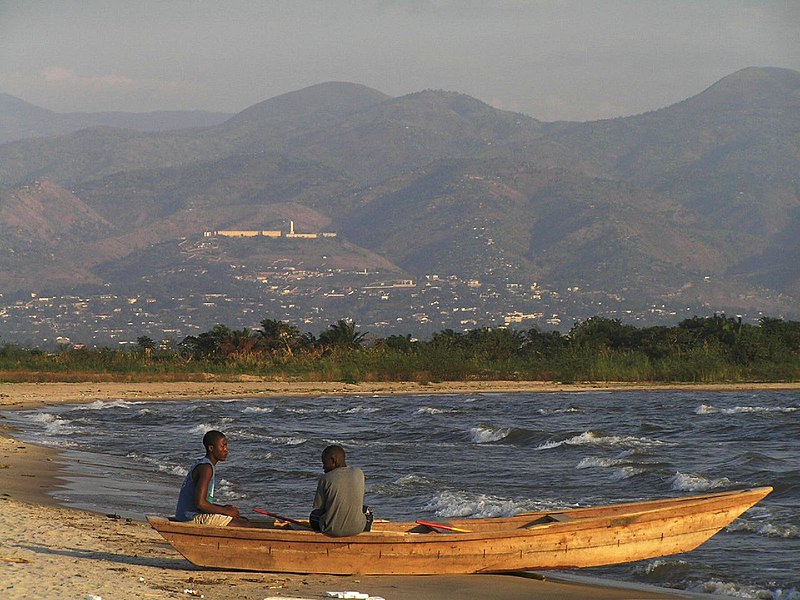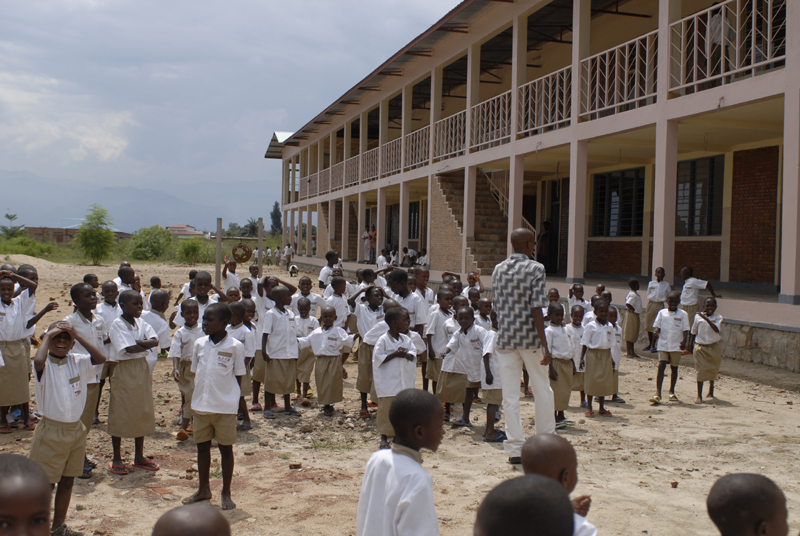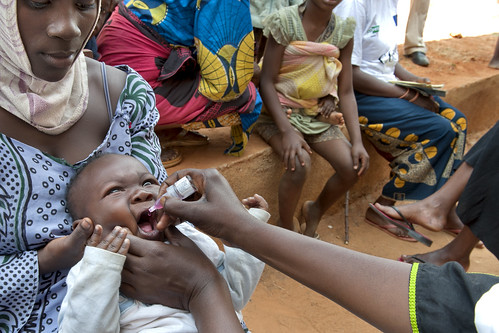Difference between revisions of "Adopting from Burundi"
(→The Process) |
(→Traveling Abroad) |
||
| (19 intermediate revisions by 2 users not shown) | |||
| Line 1: | Line 1: | ||
| − | + | {{#eimage:https://www.cia.gov/library/publications/the-world-factbook/graphics/flags/large/by-lgflag.gif|410x579px|thumb|'''The official flag.'''<BR/>Source: cia.gov.}} | |
| − | + | {{#eimage:https://www.cia.gov/library/publications/the-world-factbook/graphics/maps/by-map.gif|410x579px|thumb|'''Map.'''<BR/>Source: cia.gov.}} | |
| + | {{#eimage:https://www.cia.gov/library/publications/the-world-factbook/graphics/locator/afr/by_large_locator.gif|410x579px|thumb|'''Map.'''<BR/>Source: cia.gov.}} | ||
| − | + | {{#eimage:http://upload.wikimedia.org/wikipedia/commons/thumb/5/5d/Karuzi_Burundi_goats.jpg/800px-Karuzi_Burundi_goats.jpg|410x579px|thumb|'''Burundian women rearing goats.'''<BR/>Source: Wikipedia.org.}} | |
| + | {{#eimage:http://upload.wikimedia.org/wikipedia/commons/thumb/f/f9/Children_in_Bujumbura.jpg/800px-Children_in_Bujumbura.jpg|410x579px|thumb|'''Children in Bujumbura.'''<BR/>Source: Wikipedia.org.}} | ||
| − | + | {{#eimage:http://upload.wikimedia.org/wikipedia/commons/thumb/1/1e/Burundi_-_Lake_Tanganyika_fisheries.jpg/800px-Burundi_-_Lake_Tanganyika_fisheries.jpg|410x579px|thumb|'''Fishermen on Lake Tanganyika.'''<BR/>Source: Wikipedia.org.}} | |
| + | {{#eimage:http://upload.wikimedia.org/wikipedia/commons/6/61/Carolus_Magnus_Schule-Burundi.jpg|410x579px|thumb|'''The Charlemagne School.'''<BR/>Source: Wikipedia.org.}} | ||
| − | ''' | + | {{#eimage:https://farm4.staticflickr.com/3829/11291452906_12119c37c6.jpg|410x579px|thumb|'''A baby receiving medicine.'''<BR/>Source: flickr.com.}} |
| − | + | '''Notice: As of July 14, 2014, all individuals and agencies facilitating [[international]] adoptions must be in compliance with the Intercountry [[Universal Accreditation Act]].''' | |
| − | + | The information contained on this website is for educational purposes only and is not intended to be a substitute for professional legal advice. Always seek the advice of a licensed and qualified professional. While the content of this website is frequently updated, information changes rapidly and therefore, some information may be out of date, and/or contain inaccuracies, omissions or typographical errors. | |
| − | |||
| + | =About Burundi= | ||
| − | + | [[Burundi]]'s first democratically elected president was assassinated in October 1993 after only 100 days in office, triggering widespread ethnic violence between Hutu and Tutsi factions. More than 200,000 Burundians perished during the conflict that spanned almost a dozen years. To learn more, read [[About Burundi]]. | |
| − | |||
| − | = | + | =Hague Convention Information= |
| − | + | [[Burundi]] is party to the Hague Convention on Protection of Children and Co-operation in Respect of Intercountry [[Adoption]] ([http://adoption.state.gov/hague_convention/overview.php Hague Adoption Convention]). Intercountry [[adoption]] processing in Hague countries is done in accordance with the requirements of the Convention; the U.S. implementing [[legislation]], the Intercountry [[Adoption]] Act of 2000 (IAA); and the IAA’s implementing regulations, as well as the implementing [[legislation]] and regulations of [[Burundi]]. For more information, read [[Burundi and the Hague Convention]]. | |
| − | |||
| − | + | =Who Can Adopt= | |
| − | + | In addition to U.S. requirements, [[Burundi]] obliges prospective [[Adoptive Parents|adoptive parents]] to meet multiple requirements to [[adopt]] a child from [[Burundi]]. To learn more about these requirements, please read [[Who Can Adopt from Burundi]]. | |
| − | |||
| − | |||
| − | |||
| − | |||
| − | |||
=Who Can Be Adopted= | =Who Can Be Adopted= | ||
| − | Because Burundi is party to The Hague Adoption Convention, children from Burundi] must meet the requirements of the Convention in order to be eligible for adoption. For example, the adoption may take place only if the competent authorities of Burundi have determined that placement of the child within Burundi] has been given due consideration and that an intercountry adoption is in the child’s best interests. | + | Because [[Burundi]] is party to The Hague [[Adoption]] Convention, children from [[Burundi]]] must meet the requirements of the Convention in order to be eligible for [[adoption]]. For example, the [[adoption]] may take place only if the competent authorities of [[Burundi]] have determined that placement of the child within [[Burundi]]] has been given due consideration and that an intercountry [[adoption]] is in the child’s best interests. To learn more, read about [[Who Can Be Adopted from Burundi]]. |
| − | + | ||
| − | + | ||
| − | + | ||
| − | + | ||
| − | + | ||
| − | + | ||
| − | + | ||
| − | + | ||
| − | + | ||
| − | + | ||
| − | + | ||
| − | + | ||
| − | + | ||
| − | + | ||
| − | + | ||
| − | + | ||
| − | + | ||
| − | + | ||
| − | + | ||
| − | + | ||
| − | + | ||
| − | + | ||
| − | |||
=How to Adopt= | =How to Adopt= | ||
| − | '''WARNING: Burundi is party to the Hague Adoption Convention. Do not adopt or obtain legal custody of a child in Burundi before a U.S. consular officer issues an “Article 5 Letter” in the case. | + | '''WARNING: [[Burundi]] is party to the Hague [[Adoption]] Convention. Do not [[adopt]] or obtain [[Legal Custody|legal custody]] of a child in [[Burundi]] before a U.S. consular officer issues an “Article 5 Letter” in the case. To learn more, read about [[How to Adopt from Burundi]]. |
| − | |||
| + | =Traveling Abroad= | ||
| − | ''' | + | '''Applying for Your U.S. Passport''' |
| − | + | A valid U.S. passport is required to enter and leave [[Burundi]]. Only the U.S. Department of State has the authority to grant, issue, or verify U.S. passports. Getting or renewing a passport is easy. The [https://travel.state.gov/content/travel/en/passports/passport-help.html Passport Application Wizard] will help you determine which passport form you need, help you to complete the form online, estimate your payment, and generate the form for you to print-all in one place. To learn more, read about [[Traveling Abroad in Burundi]]. | |
| − | + | =After Adoption= | |
| + | '''Post-[[Adoption]]/Post-Placement Reporting Requirements''' | ||
| − | + | Burundian post-[[adoption]] procedures require [[Adoptive Parents|adoptive parents]] to notify the Burundian Embassy in the United States of an [[adopted]] child’s presence in the United States and submit annual reports on the child. Children from [[Burundi]] maintain Burundian citizenship after immigrating to the United States and the Burundian Embassy may seek to conduct periodic welfare/whereabouts visits with Burundian adoptees and their adoptive families until the children reach age 18. | |
| − | + | We strongly urge you to comply with [[Burundi]]’s post-[[adoption]] requirements in a timely manner. Your [[Adoption Agency|adoption agency]] may be able to help you with this process. Your cooperation will contribute to that country’s history of positive experiences with U.S. citizen parents. | |
| − | + | '''Post-[[Adoption]] Resources''' | |
| − | + | ||
| − | + | ||
| − | + | ||
| − | + | ||
| − | + | ||
| − | + | Many [[Adoptive Parents|adoptive parents]] find it important to find support after the [[adoption]]. There are many public and private nonprofit post-[[adoption]] services available for children and their families. There are also numerous adoptive family support groups and [[adoptee]] [[organizations]] active in the United States that provide a network of options for adoptees who seek out other adoptees from the same country of origin. Take advantage of all the resources available to your family, whether it is another adoptive family, a support group, an advocacy organization, or your religious or community services. | |
| − | + | ||
| − | + | ||
| − | + | Here are some places to start your support group search: | |
| − | + | [https://www.childwelfare.gov/ Child Welfare Information Gateway] | |
| − | + | ||
| − | + | ||
| + | [http://www.nacac.org/ North American Council on Adoptable Children] | ||
| − | + | [http://www.adoptionservices.org/adoption_support_groups_family/index.htm Adoption Services Support Groups for adopting Persons] | |
| − | ''' | + | '''NOTE:''' Inclusion of non-U.S. government links does not imply endorsement of contents. |
| − | + | ||
| − | + | ||
| − | + | =Contact Information= | |
| − | + | ||
| − | + | ||
| − | + | '''U.S. Embassy in [[Burundi]]''' | |
| − | + | Avenue Des Etats Unis, Bujumbura, [[Burundi]] | |
| + | Tel: +257 22 20 7000 | ||
| + | Fax: +257 24 34 67 | ||
| + | Email: BujumburaC@state.gov | ||
| + | Internet: [http://Burundi.USEmbassy.gov U.S. Embassy in Burundi] | ||
| − | |||
| − | |||
| − | ''' | + | '''[[Burundi]]’s [[Adoption]] Authority''' |
| − | + | ||
| − | + | ||
| + | Ministry of Solidarity, Human Rights, and Gender | ||
| + | Address: Boite Postale 6518, Bujumbura, [[Burundi]] | ||
| + | Tel: +257 22 216 303 | ||
| + | Fax: +257 22 218 201 | ||
| + | Email: solidaritegenre@yahoo.fr | ||
| − | |||
| + | '''Embassy of [[Burundi]]''' | ||
| − | + | 2233 [[Wisconsin]] Avenue N.W. Suite 212; [[Washington]] D.C. 20007 | |
| − | + | Tel: 202 342 2574 | |
| − | + | Fax: 202 342 2578 | |
| − | + | Email: BurundiEmbassy@erols.com | |
| − | + | Internet: [http://BurundiEmbassy-usa.org Embassy of Burundi] | |
| − | + | ||
| − | + | ||
| − | + | ||
| − | + | ||
| − | : | + | |
| − | : | + | |
| − | : | + | |
| − | + | ||
| − | : | + | |
| − | + | ||
| − | + | ||
| − | + | ||
| − | + | ||
| − | + | ||
| − | + | ||
| − | + | ||
| − | + | ||
| − | + | ||
| − | + | ||
| − | + | ||
| − | + | ||
| − | + | ||
| − | ''' | + | '''Office of Children’s Issues''' |
| − | + | ||
| − | + | ||
| + | U.S. Department of State | ||
| + | CA/OCS/CI | ||
| + | SA-17, 9th Floor | ||
| + | [[Washington]], DC 20522-1709 | ||
| + | Tel: 1-888-407-4747 | ||
| + | Email: AdoptionUSCA@state.gov | ||
| + | Internet: [http://adoption.state.gov U.S. Department of State] | ||
| − | |||
| − | + | '''U.S. Citizenship and Immigration Services (USCIS)''' | |
| − | :: | + | For questions about immigration procedures: |
| + | National Customer Service Center (NCSC) | ||
| + | Tel: 1-800-375-5283 (TTY 1-800-767-1833) | ||
| + | Internet: [http://uscis.gov USCIS] | ||
| − | |||
| − | :: | + | For questions about filing a Form I-800A or I-800 petition: |
| + | National Benefits Center | ||
| + | Tel: 1-877-424-8374 (toll free); 1-816-251-2770 (local) | ||
| + | Email: NBC.Adoptions@DHS.gov | ||
| − | + | ==SOURCE== | |
| + | '''Intercountry [[Adoption]], Bureau of Consular Affairs. U.S. Department of State Country Information''' [[adoption]].state.gov/country_information/country_specific_info.php?country-select=[[burundi]] | ||
| − | + | [[Category: International Adoption]] | |
| − | + | ||
| − | + | ||
| − | + | ||
| − | + | ||
| − | + | ||
| − | + | ||
| − | + | ||
| − | + | ||
| − | + | ||
| − | + | ||
| − | + | ||
| − | + | ||
| − | + | ||
| − | + | ||
| − | + | ||
| − | + | ||
| − | + | ||
| − | + | ||
| − | + | ||
| − | + | ||
| − | + | ||
| − | + | ||
| − | + | ||
| − | + | ||
| − | + | ||
| − | + | ||
| − | + | ||
| − | + | ||
| − | + | ||
| − | + | ||
| − | + | ||
| − | + | ||
Latest revision as of 13:17, 1 July 2021
Notice: As of July 14, 2014, all individuals and agencies facilitating international adoptions must be in compliance with the Intercountry Universal Accreditation Act.
The information contained on this website is for educational purposes only and is not intended to be a substitute for professional legal advice. Always seek the advice of a licensed and qualified professional. While the content of this website is frequently updated, information changes rapidly and therefore, some information may be out of date, and/or contain inaccuracies, omissions or typographical errors.
Contents
About Burundi
Burundi's first democratically elected president was assassinated in October 1993 after only 100 days in office, triggering widespread ethnic violence between Hutu and Tutsi factions. More than 200,000 Burundians perished during the conflict that spanned almost a dozen years. To learn more, read About Burundi.
Hague Convention Information
Burundi is party to the Hague Convention on Protection of Children and Co-operation in Respect of Intercountry Adoption (Hague Adoption Convention). Intercountry adoption processing in Hague countries is done in accordance with the requirements of the Convention; the U.S. implementing legislation, the Intercountry Adoption Act of 2000 (IAA); and the IAA’s implementing regulations, as well as the implementing legislation and regulations of Burundi. For more information, read Burundi and the Hague Convention.
Who Can Adopt
In addition to U.S. requirements, Burundi obliges prospective adoptive parents to meet multiple requirements to adopt a child from Burundi. To learn more about these requirements, please read Who Can Adopt from Burundi.
Who Can Be Adopted
Because Burundi is party to The Hague Adoption Convention, children from Burundi] must meet the requirements of the Convention in order to be eligible for adoption. For example, the adoption may take place only if the competent authorities of Burundi have determined that placement of the child within Burundi] has been given due consideration and that an intercountry adoption is in the child’s best interests. To learn more, read about Who Can Be Adopted from Burundi.
How to Adopt
WARNING: Burundi is party to the Hague Adoption Convention. Do not adopt or obtain legal custody of a child in Burundi before a U.S. consular officer issues an “Article 5 Letter” in the case. To learn more, read about How to Adopt from Burundi.
Traveling Abroad
Applying for Your U.S. Passport
A valid U.S. passport is required to enter and leave Burundi. Only the U.S. Department of State has the authority to grant, issue, or verify U.S. passports. Getting or renewing a passport is easy. The Passport Application Wizard will help you determine which passport form you need, help you to complete the form online, estimate your payment, and generate the form for you to print-all in one place. To learn more, read about Traveling Abroad in Burundi.
After Adoption
Post-Adoption/Post-Placement Reporting Requirements
Burundian post-adoption procedures require adoptive parents to notify the Burundian Embassy in the United States of an adopted child’s presence in the United States and submit annual reports on the child. Children from Burundi maintain Burundian citizenship after immigrating to the United States and the Burundian Embassy may seek to conduct periodic welfare/whereabouts visits with Burundian adoptees and their adoptive families until the children reach age 18.
We strongly urge you to comply with Burundi’s post-adoption requirements in a timely manner. Your adoption agency may be able to help you with this process. Your cooperation will contribute to that country’s history of positive experiences with U.S. citizen parents.
Post-Adoption Resources
Many adoptive parents find it important to find support after the adoption. There are many public and private nonprofit post-adoption services available for children and their families. There are also numerous adoptive family support groups and adoptee organizations active in the United States that provide a network of options for adoptees who seek out other adoptees from the same country of origin. Take advantage of all the resources available to your family, whether it is another adoptive family, a support group, an advocacy organization, or your religious or community services.
Here are some places to start your support group search:
Child Welfare Information Gateway
North American Council on Adoptable Children
Adoption Services Support Groups for adopting Persons
NOTE: Inclusion of non-U.S. government links does not imply endorsement of contents.
Contact Information
U.S. Embassy in Burundi
Avenue Des Etats Unis, Bujumbura, Burundi Tel: +257 22 20 7000 Fax: +257 24 34 67 Email: BujumburaC@state.gov Internet: U.S. Embassy in Burundi
Ministry of Solidarity, Human Rights, and Gender Address: Boite Postale 6518, Bujumbura, Burundi Tel: +257 22 216 303 Fax: +257 22 218 201 Email: solidaritegenre@yahoo.fr
Embassy of Burundi
2233 Wisconsin Avenue N.W. Suite 212; Washington D.C. 20007 Tel: 202 342 2574 Fax: 202 342 2578 Email: BurundiEmbassy@erols.com Internet: Embassy of Burundi
Office of Children’s Issues
U.S. Department of State CA/OCS/CI SA-17, 9th Floor Washington, DC 20522-1709 Tel: 1-888-407-4747 Email: AdoptionUSCA@state.gov Internet: U.S. Department of State
U.S. Citizenship and Immigration Services (USCIS)
For questions about immigration procedures: National Customer Service Center (NCSC) Tel: 1-800-375-5283 (TTY 1-800-767-1833) Internet: USCIS
For questions about filing a Form I-800A or I-800 petition:
National Benefits Center
Tel: 1-877-424-8374 (toll free); 1-816-251-2770 (local)
Email: NBC.Adoptions@DHS.gov
SOURCE
Intercountry Adoption, Bureau of Consular Affairs. U.S. Department of State Country Information adoption.state.gov/country_information/country_specific_info.php?country-select=burundi







